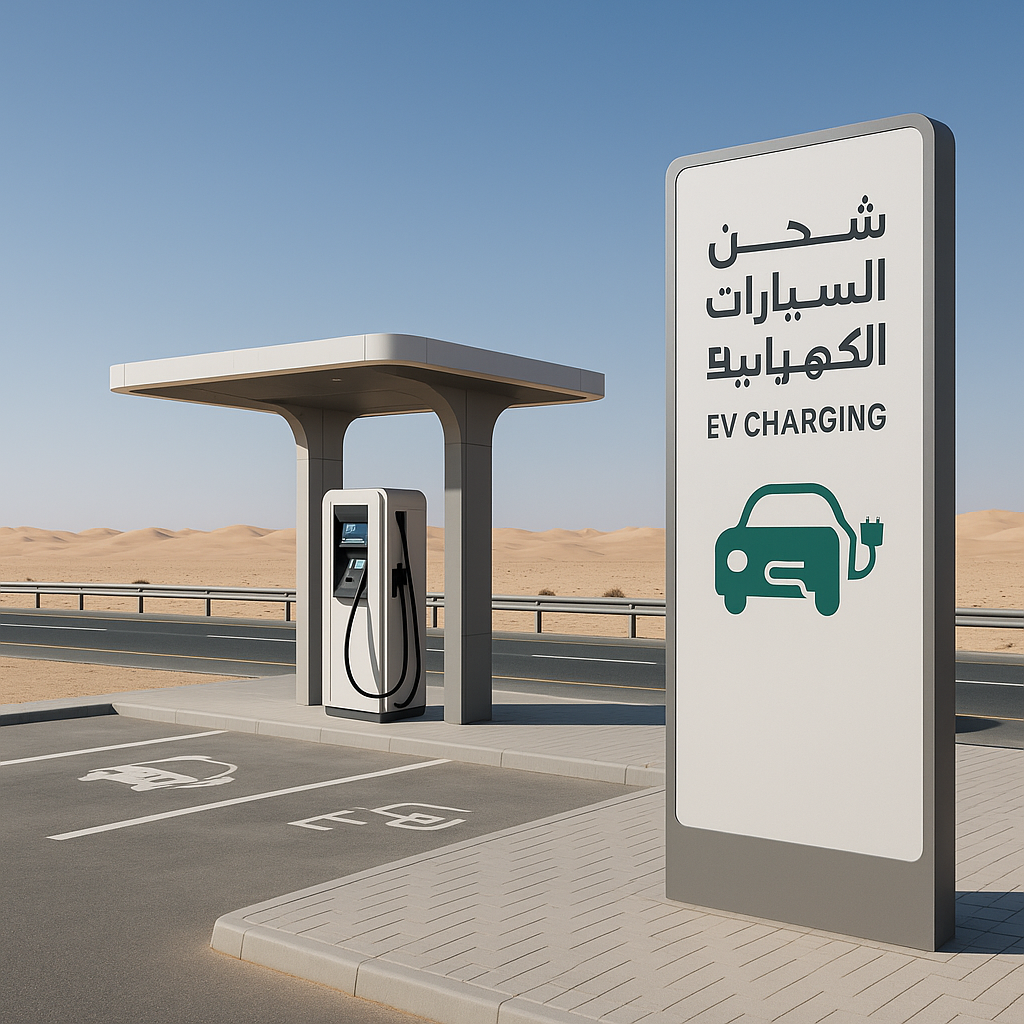
Key Takeaways
-
The UAE has begun rolling out a federal EV charging network under the Ministry of Energy and Infrastructure (MoEI)
-
Over 1,000 charging stations are planned nationwide by 2030, covering all seven emirates
-
The initiative supports the UAE’s Net Zero 2050 targets and growing electric vehicle demand
-
Real estate developments and public infrastructure will be required to integrate EV-ready facilities
UAE’s Unified EV Charging Network Initiative
The UAE is accelerating its electric mobility transition with the launch of a nationwide electric vehicle (EV) charging network, led by the Ministry of Energy and Infrastructure. The federal project aims to unify fragmented charging infrastructure under one system, enhance accessibility across the emirates, and meet surging demand from EV adoption.
The MoEI, in collaboration with private sector partners and emirate-level authorities, plans to deploy over 1,000 smart charging stations across urban centers, highways, residential communities, and public facilities by 2030.
This move aligns with the UAE’s National Energy Strategy 2050 and Net Zero by 2050 strategic initiative, targeting a 50% reduction in carbon emissions from transport.
Nationwide Coverage and Smart Integration
Unlike earlier emirate-specific projects in Dubai (DEWA’s Green Charger) and Abu Dhabi (TAQA/EVIS), the new federal rollout aims for seamless interoperability. All stations will be connected to a unified digital platform that provides real-time availability, smart billing, and reservation systems.
Key deployment zones include:
-
Highways such as Sheikh Zayed Road, Emirates Road, and Sheikh Khalifa Bin Zayed International Road
-
Major residential hubs in Sharjah, Ajman, Ras Al Khaimah, Fujairah, and Umm Al Quwain
-
Airports, malls, metro stations, and federal buildings
Each station will offer a mix of DC fast charging and AC standard options, with compatibility for major international EV brands.
Regulations for Real Estate Developers
To support the infrastructure shift, the federal government is finalizing guidelines that will require new real estate projects to incorporate EV-ready parking and charger installations. These include:
-
Mandatory EV infrastructure for all new residential towers and villas
-
Dedicated EV spaces in shopping malls, office buildings, and hotels
-
Retroactive upgrades in public car parks and government facilities
This regulatory push is expected to increase demand for EV-compatible homes and boost the value of developments that are future-ready.
Boost to EV Market and Green Mobility
The UAE’s EV market is projected to grow at a compound annual growth rate (CAGR) of over 25% through 2030, according to Frost & Sullivan and the MoEI. As of early 2025, more than 30,000 EVs are registered nationwide—a figure that’s expected to quadruple by the end of the decade.
Federal incentives, such as free Salik, green parking permits, and VAT exemptions on charging equipment, are also under review to further encourage adoption.
Sustainability Goals and Global Positioning
With this move, the UAE is positioning itself as a regional leader in sustainable transport. The EV network rollout complements broader initiatives such as the Etihad Rail project, Dubai’s autonomous transport strategy, and nationwide clean energy investments.
It also supports the country’s goal of becoming a global benchmark for smart, low-emission infrastructure in line with its COP28 commitments.
Stay informed on the latest news and insights across the UAE —
Subscribe to our newsletter and explore more at fäm Properties.